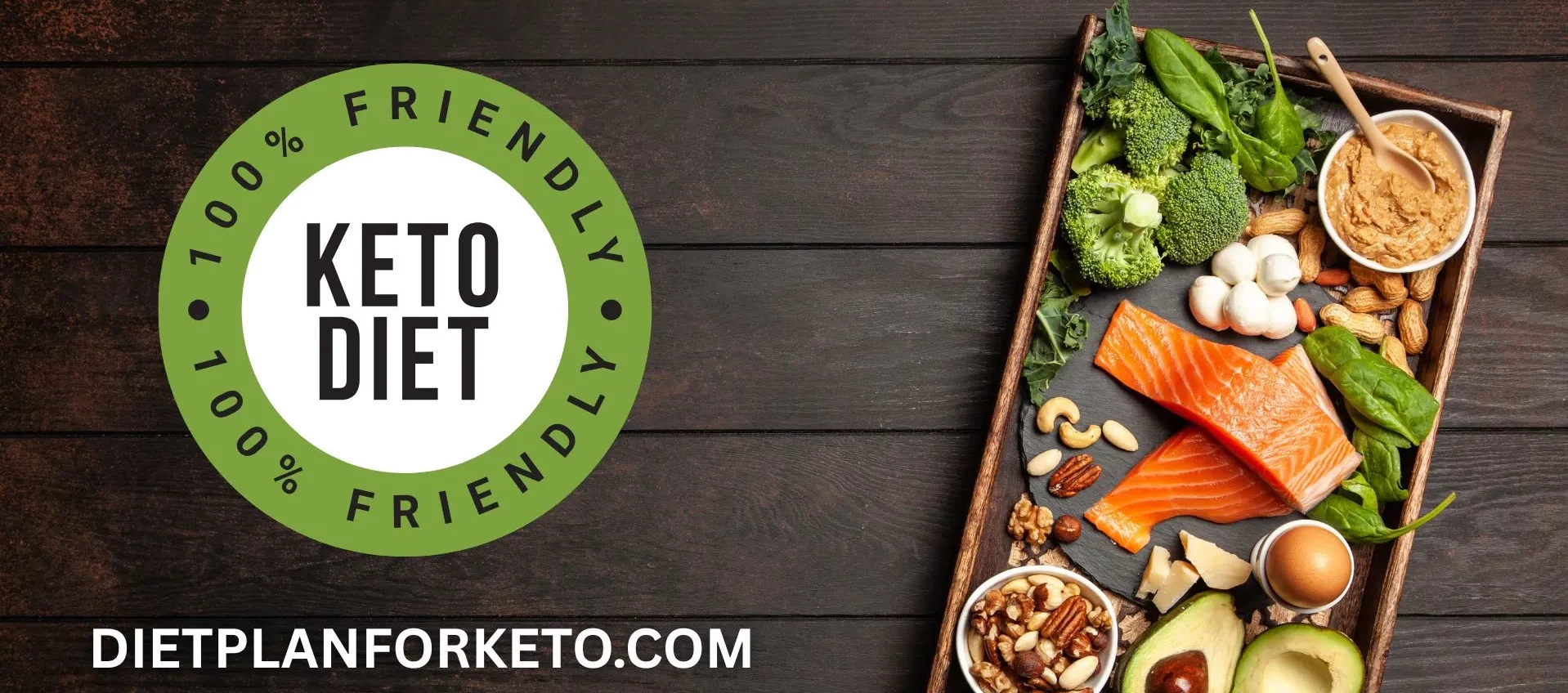Table of Contents
- Introduction to the Keto Diet and Weight Loss
- How Much Weight Can You Lose in a Month on Keto?
- How Much Weight Can You Lose in 1 Week on Keto?
- Do You Lose Weight Quickly on Keto?
- Will a Keto Diet Reduce Belly Fat?
- Average Weight Loss on Keto in a Month
- How to Speed Up Weight Loss in Ketosis
- Practical Tips for Staying on Track with Keto
- Potential Challenges and How to Overcome Them
- Conclusion and Final Thoughts on Keto for Weight Loss
1. Introduction to the Keto Diet and Weight Loss
The ketogenic diet, commonly called keto, is a low-carb, high-fat eating plan that shifts the body into a state called ketosis. In ketosis, your body uses fat as its primary energy source instead of glucose, leading to increased fat-burning.
By drastically reducing carbohydrate intake and focusing on fats, keto helps you tap into stored fat for fuel. This process not only aids in weight loss but also can improve mental clarity, energy levels, and overall metabolic health.
Keto has gained popularity as an effective weight-loss strategy, especially among those who have struggled with traditional calorie-reduction diets.
By cutting carbs, keto minimizes insulin spikes, reducing fat storage and helping the body become more efficient at burning stored fat. Let’s dive into the specifics of keto and how it can help you achieve your weight loss goals.
2. How Much Weight Can You Lose in a Month on Keto?
Many people starting keto see substantial weight loss in their first month, averaging 10-12 pounds, though results vary based on individual factors.
This initial weight loss is often more prominent due to the rapid loss of water weight as glycogen stores are depleted.
Factors that Influence Monthly Weight Loss:
- Starting Weight and Body Composition: Heavier individuals often experience more initial weight loss.
- Metabolic Rate: A higher metabolic rate can lead to faster fat loss.
- Caloric Intake and Macronutrient Ratios: Staying within the recommended macronutrient range (low-carb, high-fat, moderate protein) while maintaining a slight calorie deficit enhances fat loss.
Setting Realistic Expectations: After the first month, weight loss typically stabilizes to a healthier, more sustainable 1-2 pounds per week, as the body shifts focus from losing water weight to burning fat. Keto isn’t a quick fix but a steady, long-term approach to losing weight healthily and sustainably.

3. How Much Weight Can You Lose in 1 Week on Keto?
During the first week of keto, it’s not uncommon for people to lose between 2-10 pounds. This early weight loss mainly comes from water as your body adjusts to a low-carb intake.
When carbohydrate intake drops, the body begins to use glycogen (a form of stored carbohydrate), which holds water. As glycogen is used, water is released, resulting in what’s often called the “keto whoosh.”
Tips for Success in the First Week:
- Stay Hydrated: Drinking plenty of water helps manage the initial fluid loss.
- Electrolyte Balance: As water is flushed from your body, you lose electrolytes. Replenish with sodium, potassium, and magnesium to avoid “keto flu” symptoms like fatigue and headaches.
- Focus on Fat and Protein: Incorporate healthy fats (avocado, olive oil, coconut oil) and moderate protein to sustain energy.
4. Do You Lose Weight Quickly on Keto?
Yes, many people lose weight relatively quickly on keto, especially in the beginning. The initial rapid weight loss is largely water weight, but as the body adapts to ketosis, fat loss continues at a steadier pace.
Keto is particularly effective for people looking to kickstart weight loss or who have previously struggled with slow progress on other diets.
Why Weight Loss Slows After Initial Rapid Loss: After glycogen stores are depleted and the body adjusts, weight loss becomes more gradual.
This is normal and healthy, as rapid, prolonged weight loss can lead to muscle loss, nutrient deficiencies, and other health issues. Sustainable weight loss involves losing fat while preserving lean muscle.
Tips for Sustained Weight Loss:
- Avoid Carb Creep: Small amounts of carbs can sneak into your diet, so monitor intake to stay in ketosis.
- Include Exercise: Cardio and resistance training support fat loss and muscle maintenance.
- Mindful Eating: Listen to hunger cues, avoid snacking, and eat until satisfied but not overly full.
5. Will a Keto Diet Reduce Belly Fat?
The keto diet is especially effective at targeting stubborn belly fat. Lower carbohydrate intake leads to reduced insulin levels, which can help the body break down fat stores around the abdominal area.
This is because high insulin levels can promote fat storage, particularly in the belly area.
How Keto Targets Belly Fat:
- Insulin Reduction: By keeping insulin levels stable, keto helps prevent fat accumulation, especially around the belly.
- Focus on Whole Foods: Processed foods can lead to belly bloating. Keto’s emphasis on whole, low-carb foods minimizes inflammation, helping reduce belly fat.
Additional Tips for Belly Fat Reduction:
- Strength Training: Building muscle, especially in the core area, can help sculpt the abdominal region and improve overall body composition.
- Consistent Sleep: Poor sleep is associated with increased belly fat. Aim for 7-9 hours of quality sleep each night.
- Stress Management: High cortisol (stress hormone) levels are linked to belly fat, so incorporating stress-reducing practices like meditation, exercise, or hobbies can be beneficial.
6. Average Weight Loss on Keto in a Month
After the initial adjustment period, most people can expect to lose an average of 1-2 pounds per week, which totals around 4-8 pounds per month.
Weight loss on keto tends to slow as the body settles into ketosis and adjusts to a new normal.
Ways to Monitor Progress Beyond the Scale:
- Measurements: Tracking your waist, hips, and thigh measurements can show fat loss even if the scale doesn’t move.
- Body Fat Percentage: Using a body fat scale or having body composition analyzed can give a more accurate picture of fat loss.
- Photos: Before-and-after photos help document physical changes that may not be evident through weight alone.
7. How to Speed Up Weight Loss in Ketosis
While keto alone can lead to steady weight loss, a few strategies can help speed up the process.
Effective Methods to Boost Fat Loss:
- Intermittent Fasting: Combining keto with intermittent fasting (such as the 16:8 method) increases time in fat-burning mode, as fasting naturally keeps insulin levels low.
- Stay Active: High-intensity interval training (HIIT) and weight lifting increase metabolism and help retain muscle, which is crucial for long-term weight loss.
- Focus on Whole, Unprocessed Foods: Clean keto (avoiding processed keto snacks) minimizes empty calories, helping the body achieve efficient fat loss.
- Monitor Your Macros Closely: Eating too much protein or hidden carbs can prevent ketosis. Use a tracking app to stay within recommended ranges.
- Consider Exogenous Ketones: While not necessary, exogenous ketones can provide an energy boost, support endurance during workouts, and enhance ketosis.
- Prioritize Sleep and Manage Stress: Good sleep and low stress are essential for weight loss. High cortisol levels from stress can lead to cravings and overeating.
8. Practical Tips for Staying on Track with Keto
Sticking to keto long-term can be challenging, but these practical tips make it more manageable.
Tips to Simplify Keto and Avoid Pitfalls:
- Plan and Prep Meals: Meal prepping saves time and ensures you always have keto-friendly options.
- Read Food Labels Carefully: Many processed foods contain hidden sugars or carbs. Familiarize yourself with common carb sources.
- Embrace Healthy Fats: Avocado, olive oil, and coconut oil are excellent sources of healthy fats to keep you full and satisfied.
- Snack Wisely: Keep keto-friendly snacks like cheese, nuts, or hard-boiled eggs on hand to avoid reaching for carbs.
- Use Community Resources: Joining a keto group or forum can provide support, recipe ideas, and motivation.
Social and Lifestyle Adjustments:
- Dining Out: Choose dishes that center around protein and vegetables, ask for sauces on the side, and skip starchy sides.
- Traveling on Keto: Pack snacks, research local food options, and prioritize simple dishes that are likely to be low-carb.
- Handling Cravings: When cravings hit, opt for a small keto snack, like a handful of nuts or a piece of cheese, instead of reaching for high-carb foods.
9. Potential Challenges and How to Overcome Them
While keto offers many benefits, some challenges can arise, especially for beginners.
Common Issues and Solutions:
- Keto Flu: Often occurring in the first week, symptoms include headache, fatigue, and irritability due to electrolyte imbalance. Drink plenty of water and supplement with sodium, potassium, and magnesium to ease symptoms.
- Digestive Issues: Some people experience constipation or digestive discomfort on keto. Increase your intake of fiber-rich, low-carb vegetables like leafy greens, and drink water regularly.
- Plateaus: If you stop losing weight, revisit your macros, consider intermittent fasting, and ensure you’re not consuming hidden carbs.
Psychological Tips for Staying Motivated:
- Celebrate Non-Scale Victories: Improved energy, reduced cravings, or a smaller waistline can be just as rewarding as the number on the scale.
- Stay Consistent: Results take time, so consistency is key. Focus on the long-term benefits, not just short-term results.
- Seek Support: Joining a keto group or having a friend to share the journey with can provide encouragement and accountability.
10. Conclusion and Final Thoughts on Keto for Weight Loss
The ketogenic diet is a powerful tool for weight loss, leveraging the body’s natural ability to burn fat for energy.
By shifting into ketosis, keto provides a path to steady, sustainable weight loss while offering additional benefits such as improved energy, mental clarity, and better metabolic health.
However, successful weight loss on keto requires planning, patience, and consistency.
Remember, keto is not just a quick-fix diet but a lifestyle shift. Consult a healthcare professional before starting any significant dietary change, especially if you have pre-existing health conditions.
With the right approach, keto can help you achieve your weight loss goals and support a healthier, happier you. Embrace the journey, track your progress, and celebrate every milestone on your way to a transformed self.
